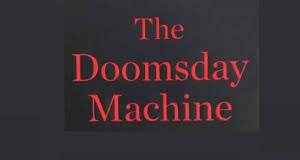
Russia
is prepared to let New START lapse if the Trump administration is not
interested in extending the agreement Putin told reporters
June 6.
Putin
said that while renewing the treaty is on Russia’s agenda, he noted that there
is “no formal negotiating process.” He added, “We have already said a
hundred times that we are ready to do so, but no one is willing to talk about
it with us.”
New
START, which caps the deployed U.S. and Russian strategic nuclear arsenals at
1,550 warheads and 700 missiles and bombers, allows the two sides to extend the
pact for up to five years until 2026 without requiring U.S. Senate approval.
Russia
has repeatedly expressed interest in an extension, but it has raised concerns about
U.S. procedures to remove submarine-launched ballistic missile (SLBM) launchers
and some B-52 bombers from treaty accountability.
Putin
said his most recent conversation with President Donald Trump “inspires certain
optimism,” as his American counterpart also noted concern about “the amount of
arms-related expenses incurred by the United States and other countries.”
Putin
also remarked on his personal belief that “all nuclear countries” should be
involved in arms control negotiations, “including official and unofficial”
countries to “create a broad platform for discussion and decision-making.”
A
decision on New START is one that president Trump “will make at some point next
year,” said National Security Council senior director for weapons of mass
destruction and biodefense Timothy Morrison at a May 29 event at
the Hudson Institute in
Washington.
Administration
officials have repeatedly downplayed the risks of New START expiring in
February 2021 with nothing to replace it. When asked by a reporter at the event
if the United States could rely on national technical means to monitor the
Russian strategic arsenal in the absence of either extension or another form of
negotiated verification mechanisms, Morrison sidestepped the question to remark
that the president “believes we have time to propose more effective arms
control.”
Russia’s
concerns about U.S. implementation of New START have not been well-received by
the White House. “We shouldn’t presuppose that the Russians are interested in
extending the treaty,” Morrison said. “If they were, they wouldn’t be creating
false narratives about U.S. compliance with the treaty” with respect to the
conversion of U.S. submarines and heavy bombers.
The
president is interested in looking at the “totality” of Russian and Chinese
programs, said Morrison at the May 29 event, and to not “defer the difficult”
issues like limiting tactical nuclear weapons. Morrison lamented the fact that
New START only covers strategic weapons, and not the arsenal of tactical
weapons possessed by Russia, which outnumbers that of the United States.
Trump
administration officials to date have provided few details on how they would
persuade Russia to limit broader categories of weapons and China to participate
in arms control talks for the first time.
Morrison
said the administration is considering arms control options that achieve four
specific objectives: it must be “in the national security interest of the
United States,” allies, and partners; “constrain potential adversaries’
current and planned military capabilities and prevent unnecessary military
competition;” have “robust verification measures;” and ensure “timely and
substantial consequences for violations of arms control.”
In
regard to China, Morrison noted that the administration is “considering
inducements” to bring China to the table, but did not offer any specifics as to
what those inducements might be.
Morrison
said that if China is “interested in being a responsible global stakeholder,
then they’ll be interested in talking to us about arms control.” He added that
“for China, which is concerned about avoiding an arms race…here's an
opportunity to match words with actions for a country that purports to have a
minimum deterrence policy.”
Failing
to extend New START would be a “serious mistake for strategic stability and
U.S. security” according to a bicameral group of
Democratic leaders of congressional national security committees. Noting the
“robust verification measures and legally binding numerical limitations on
strategic delivery systems and warheads,” the lawmakers urged president Trump
in a June 4 letter to negotiate a five-year extension of the treaty through
2026.
The
letter praised the administration’s “effort aimed at bringing both China and
Russia into new arms control talks” but stressed that in light of “the
challenges inherent to reaching new agreements with Russia and China, we
strongly believe the limitations and verification measures of New START must
remain in place while any such negotiation occurs”
The
letter also requested responses by June 15 to several questions about the
effects on national security, intelligence collection, and global stability if
New START were to lapse and the status of treaty extension and new arms control
negotiations with Russia and China.
The
letter was signed by the Democratic leaders of the House and Senate foreign
affairs committees, Rep. Eliot Engel (D-N.Y.) and Sen. Robert Menendez (D-N.J.),
the House and Senate armed services committees, Rep. Adam Smith (D-Wash.) and
Sen. Jack Reed (D-R.I.), the House and Senate intelligence committees, Rep.
Adam Schiff (D-Calif.) and Sen. Mark Warner (D-Va.), and the House and Senate
appropriations committee, Rep. Pete Visclosky (D-Ind.) and Sen. Richard Durbin
(D-Ill.).
No comments:
Post a Comment
Note: Only a member of this blog may post a comment.